If you’ve ever been to a Japanese convenience store, you’ve probably encountered purin: a small dessert cup of sweet Japanese custard pudding with a caramel topping. Custard has been famous in Japan since the Meiji era when it became a classic component in Japanese yogashi or Western-style sweets. Over the years, Japanese custard has been used to fill anything from taiyaki to Tokyo Banana, but its most popular use today is purin.
Table of Contents
ToggleWhat is purin?
Purin is a variation of crème caramel, or caramel custard pudding, in which a sweet egg custard cooks with a base of liquid caramel syrup. Indeed, purin is a mainstay of Japanese snack food that has escaped the confines of specialty patisseries and restaurants. It is readily available in convenience stores and as an instant supermarket mix.
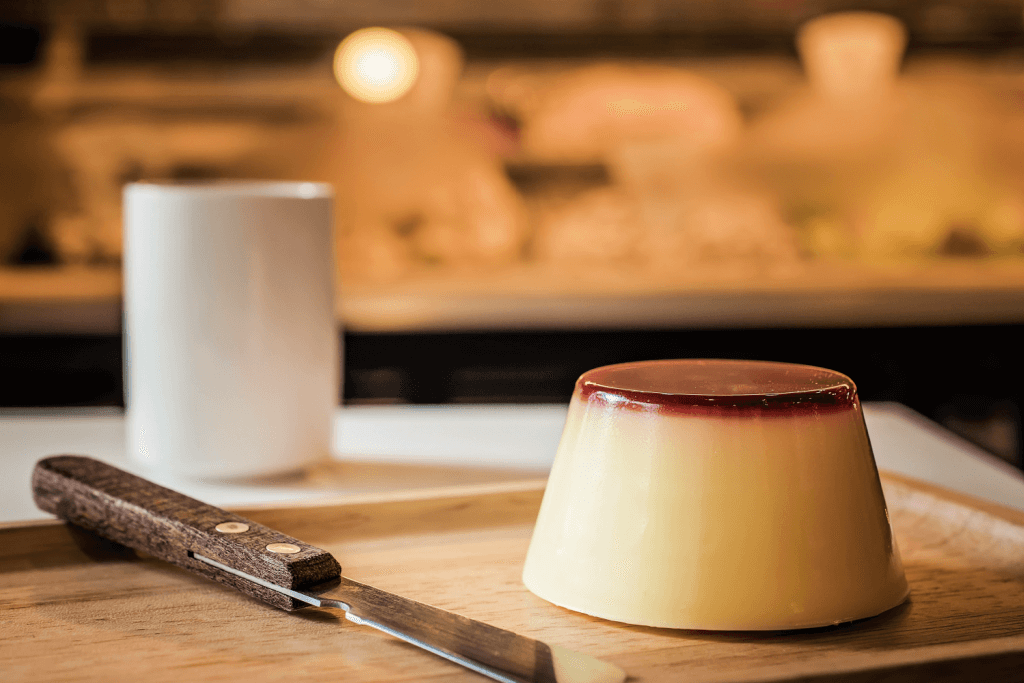
But the Japanese custard pudding obsession doesn’t stop with purin. Chawanmushi is another famous custard dish, a savory Japanese pudding that is a standard appetizer in Japanese restaurants. This subtle, sophisticated custard treat builds on an egg custard base to create a quintessentially Japanese dish incorporating a flexible variety of ingredients packed to the brim with umami flavor.
Both purin and chawanmushi are easy to make at home, requiring little preparation time and only a few essential ingredients. Read on to learn the basics before you try your hand at these authentic Japanese custard treats!
How do I make Japanese purin?
How easy is easy? In the case of purin, most of the ingredients are probably already in your pantry! Japanese purin uses five main ingredients: eggs, sugar, milk, water, and vanilla essence for extra flavor. The recipe consists of three main steps: first, making the caramel, then the custard, and finally, steaming the treat. The caramel consists of a straightforward mixture of sugar and water, cooked over medium heat until it reaches a rich amber color. Once ready, you’ll need to pour it into heatproof ramekins or other cylindrical molds and set aside.
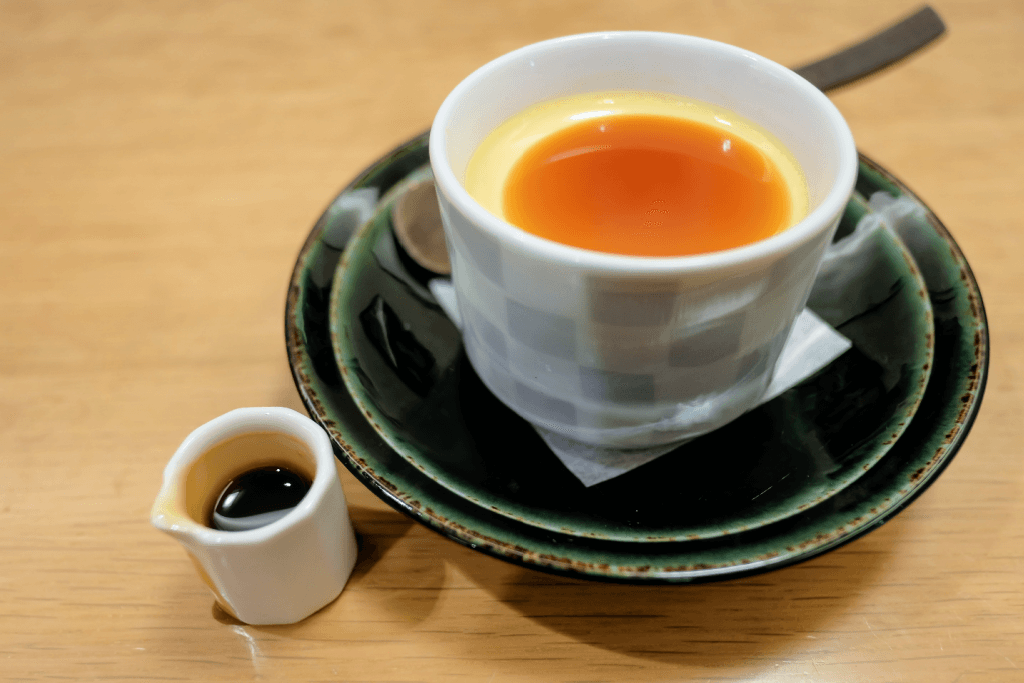
Whisk milk, egg, sugar, and vanilla essence together for the custard base in a large bowl. This doesn’t need to be taxing. Contrarily, whisking can create air bubbles that impact purin’s structure, so minimize it. Once combined, strain the mixture through a fine mesh strainer for a smooth texture. Then divide it between the molds.
Ready to fall in love with Japanese desserts like custard pudding? Check out Sakuraco! Sakuraco delivers traditional Japanese snacks, teas, sweets, and snacks from local Japanese makers directly to your door so you can enjoy the latest treats directly from Japan!
How do I set the pudding mold?
Now comes the most challenging part: instead of cooking the custard in an oven or stovetop, you typically cook purin in a bain marie to ensure the caramel doesn’t burn. You simply create a water bath by filling a deep frying pan or pot with hot water. You cover the top of the molds with aluminum foil or a lid and then place them into the water, ensuring they are half submerged.
Bring the water to a gentle boil and cook for five minutes. Then, turn off the heat and cook for 10 to 15 more minutes. Eventually, the purin’s surface solidifies and shines, and the custard takes shape. Refrigerate for a few hours until cool, then serve flipped on a plate or directly in molds with a spoon.
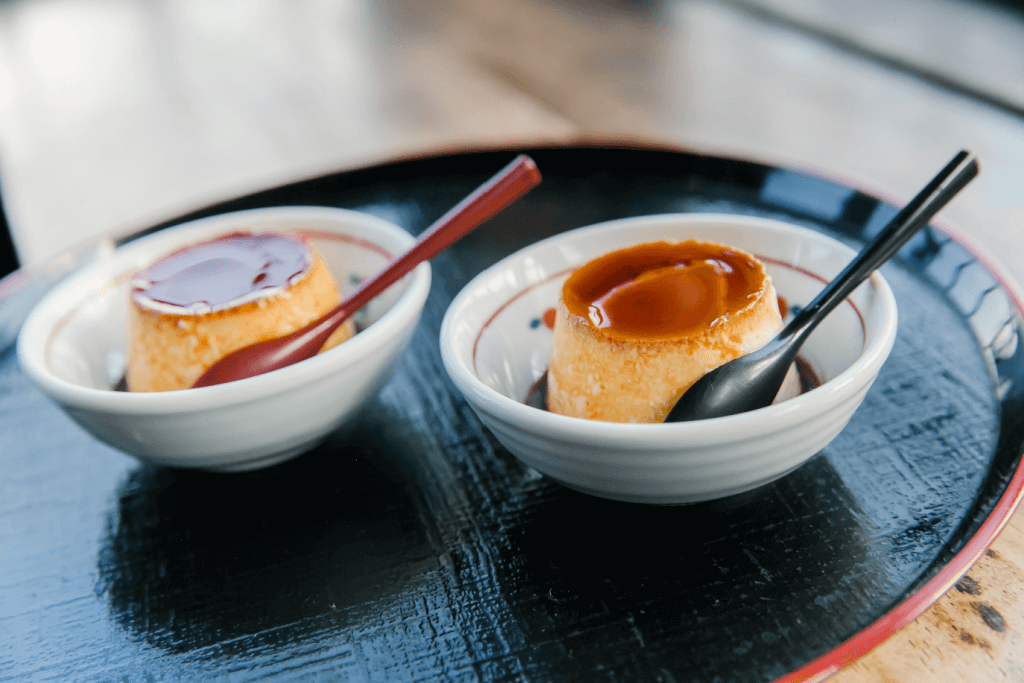
What is chawanmushi?
If Western-inspired yogashi is Japanese purin, then chawanmushi represents the essence of Japanese cuisine. This steamed egg custard gets its unique savory flavor from a mixture of umami dashi soup stock, soy sauce, and mirin. Then you fold various ingredients through the custard, often using seasonal items like shiitake mushrooms, kamaboko fish cakes, and shrimp.
But don’t worry if this sounds complicated! You can easily substitute hard-to-find Japanese ingredients with more common add-ins like chicken, mushrooms, and carrots. Additionally, a flavorful chicken or vegetable stock can substitute for dashi stock.
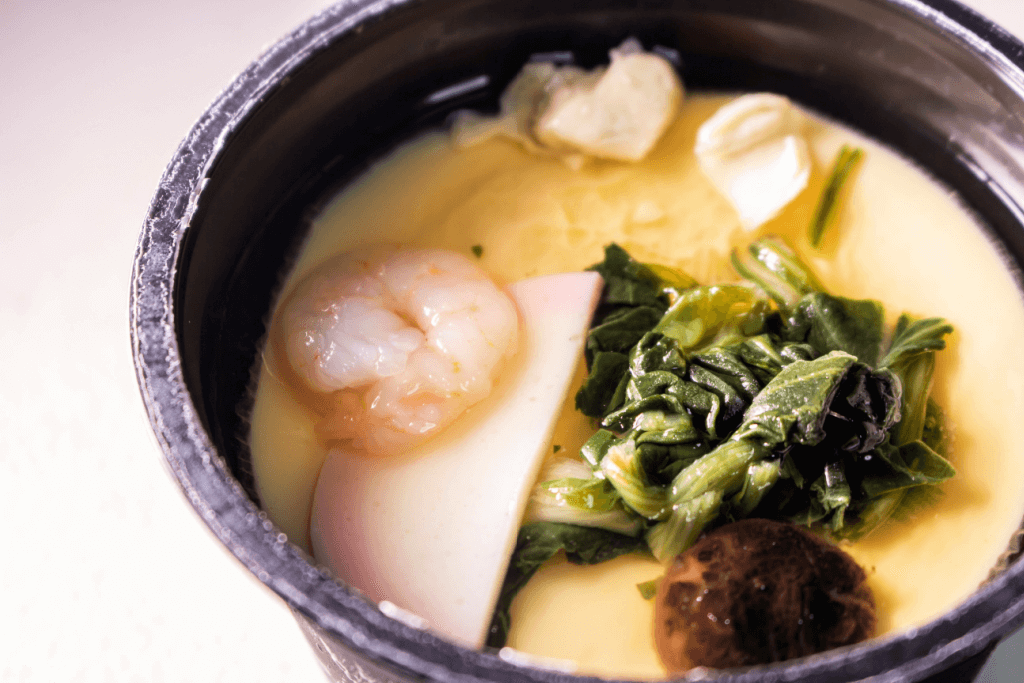
To make chawanmushi, first prepare your add-in ingredients, cutting them into small, thin slices that will fit comfortably in the heat-proof containers of your choice. Then prepare the custard. Instead of milk, the pudding base in chawanmushi combines eggs with dashi stock, mirin rice wine, and soy sauce. As with purin, the mixture is strained for a silkier texture and divided between your prepared containers. Finally, cover the containers with aluminum foil or a lid and cook in a bain marie, covered, for 25 to 30 minutes. Unlike purin, chawanmushi is best served warm, so dig in as soon as it’s ready!
Where can I enjoy Japanese pudding?
After over a century, Japan’s love affair with steamed custard pudding shows no signs of losing steam. In 2019, Starbucks released a limited-edition drink celebrating Japan’s trendiest retro dessert, purin à la mode, which combines purin with ice cream, fruit, and whipped cream.
In 2020, Mister Donut filled its limited-edition Pikachu donut with sweet, pudding-flavored cream. No matter what else the future brings, it seems sure to include more custard pudding Japanese treats—and we can’t wait to see what comes next! Have you ever had sweet Japanese pudding before? Let us know in the comments below!

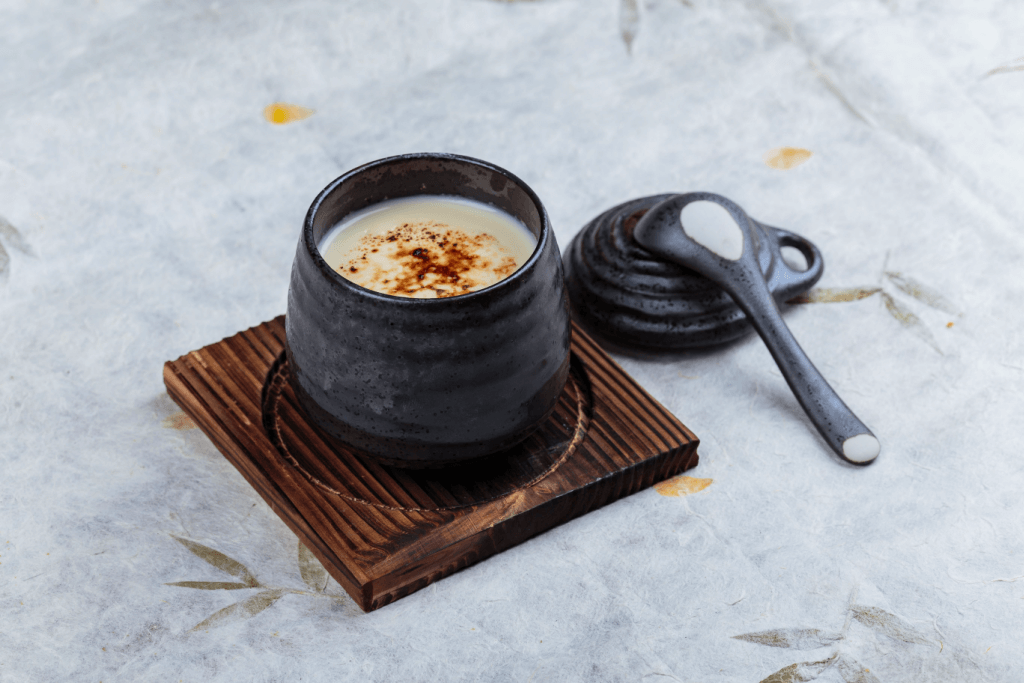




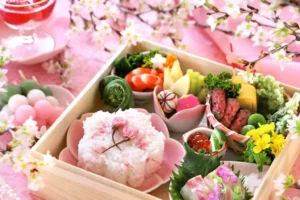




One Response
Yes! When I first moved to Japan from The United States I thought it was so curious that flan was popular in Japan! It’s very similar, although flan has a creamier texture overall.